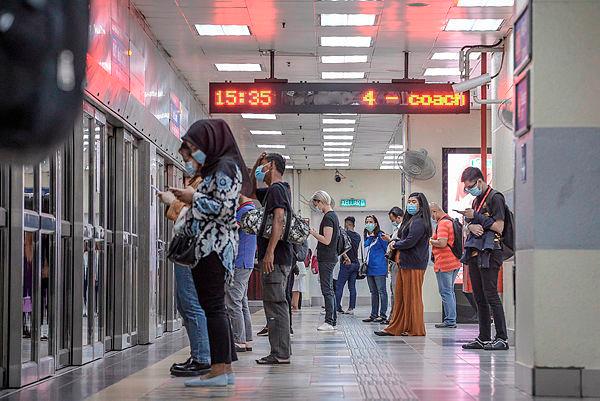PETALING JAYA: After a year of working from home (WFH), workers are streaming back to the office with mixed feelings.
While some are happy to see their workmates again, the fear of being infected with Covid-19 continues to hover over them.
According to a human resources expert, such anxieties are to be expected. Employers seem to have become accustomed to the WFH culture, with some reporting increased productivity in the months after the first movement control order was declared on March 18 last year to curb the spread of Covid-19.
A 25-year-old sales executive, who wanted to be known only as Gahjen, said he has gotten used to working from home and would prefer to continue doing so.
“I don’t actually need to go to the office since my interactions with my clients are always through virtual meetings, email, phone calls or WhatsApp,” he told theSun.
“Catching up with colleagues at the office after months of WFH would be a pleasant change but with the number of new Covid-19 cases still so high, I would rather wait,” he added.
Siddesh, 26, an executive at a legal firm, also prefers to work from home. “It’s convenient and it allows me to spend more time with my family.”
However, he agreed that there are disadvantages. “I don’t have access to documents, I can’t track down clients’ details and I’m always under pressure from supervisors and clients to get urgent things done.”
Srithren Krishnan, Arena Group head of human resources for Asia said it is not surprising that there is apprehension among employees as they return to the office.
“After all, they have been away from the office for eight months to a year.”
He said employees will harbour fears of being infected at the workplace. “There will be some phobia. There will also be suspicions about who could be carrying the virus.”
On the other hand, Srithren said there are advantages. It is more efficient to communicate face to face rather than online.
“We also get to interact with each other, eat together during lunch hour and celebrate birthdays. These are not trivial matters.”
However, he agreed that employers should put in place measures to prevent infection in the workplace. “These would include social distancing among employees, introducing sanitiser stations, self-quarantine policies and end-of-day office sanitisation.”
PersolKelly Malaysia managing director and country head Brian Sim said the WFH concept had actually led to increased productivity in general. However, he agreed that the gains for the company had come at a cost to employees.
“The line between work time and personal time has blurred. If left unchecked, it can lead to increased work-related stress and serious psychological effects, including burnout. The well-being of employees must be top priority for every company,” he said.
Counselling psychologist Dr Gerard Louis advocates a continuation of the WFH concept.
“Whether an employee has to work from home depends on his job scope. For instance, an academic can operate online and the relevance of going back to work is not valid.”
Louis, who is dean of the Faculty of Behavioural Sciences, Education and Languages at HELP University, agreed that WFH also induces anxiety, depression and stress as a result of prolonged isolation, tendency to work long hours, family management and the fear of virus cross-infection.









